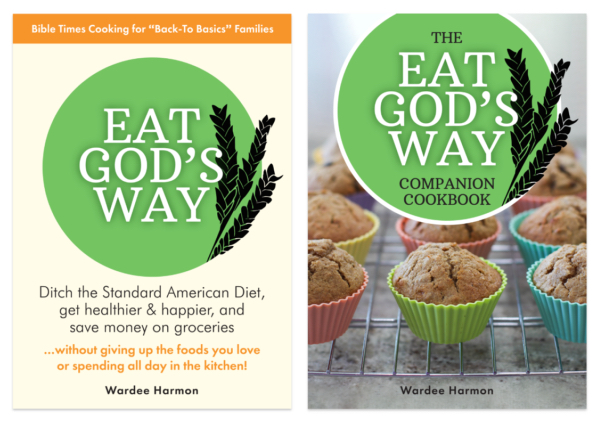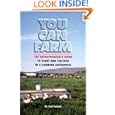
Today on the podcast I’m taking listener questions! Topics include: is a traditional diet low-carb? how is a traditional diet different than GAPS, Paleo/Primal? is there alcohol in water kefir? is water kefir safe for children? more information on dehydrated yogurt, eggs, and broth in vac sealed pouches? any advice for starting a family farm? #1 small investment toward preparedness? what do you think of almond milk, Truvia, xanthan gum, whey protein powder? which rennet — animal or vegetable? what’s the time frame/schedule for your online classes?
Whew! That plus the weekly shout out and what’s going on at our place… on today’s episode of Know Your Food with Wardee.
Click play below to listen to this week’s podcast! See below if you want other options.
Podcast: Play in new window | Download
Subscribe: RSS
Won’t play for you? Try here.
Mobile or desktop users, you can hear my podcast with Stitcher, on-demand and on-the-go. (What’s Stitcher?) You can also get it on iTunes or subscribe in the Podcasts app.
Please leave a comment or rating in iTunes and Stitcher!
What’s in Episode #12?
Yep, lots of questions this episode of Know Your Food with Wardee. And here they are. The podcast contains my answers, plus if I mentioned any additional resources, they are linked here along with the question.
Rick: I’m wondering if moving to a traditional food diet would allow me to still eat carbs of some type or another (e.g. good grains,no refined sugars, etc.) and still lose weight for not only myself but others in my family? What’s the difference between traditional diet, GAPS, and Paleo?
In addition to my own explanation, I mentioned this article that spells out the differences between the various diets and gives resources to better understand one.
Debi: Is there alcohol in water kefir? When I drink it, I feel an effect that I compare to how I felt when I used to drink even one glass of wine. Also, I’d like my children to get the benefits from water kefir, but am worried about alcohol content since they each have alcoholism in their familial background (via adoption).
Lee: I would like to find out more on dehydrated yogurt, eggs, broth, and meats that can be stored in vacuum sealed pouches.
My next class (ready for you now!) is going to be on dehydrating, so you can all look forward to documented answers and video demonstrations.
Andi: My family of 9 are praying and feeling The Lord lead us to starting a small farm. Any advice?? We are thinking, cows, chickens, pigs and of course a great farm dog! 😉
How exciting! Here’s the inspirational quote about the mixed farm from Nourishing Traditions:
“The educated consumer and the enlightened farmer together can bring about the return of the mixed farm, where cultivation of fruits and vegetables is combined with the raising of livestock and fowl in a manner that is efficient, economical and environmentally friendly. Cattle providing rich manure are the absolute basis for healthy, sustainable farming. Moreover, chickens allowed access to pasture eat worms and insects whose nutrients end up in high-quality eggs; sheep grazing in orchards obviate the need for herbicides; and livestock foraging in woodlands and other marginal areas provide rich, unpolluted meat and milk, making these lands economically viable for the farmer. It is not animal cultivation that leads to hunger and famine but unwise agricultural practices and monopoloistic distribution systems.” – Sally Fallon Morell, Nourishing Traditions © 2001, page 31.
Here’s the book I mentioned: You Can Farm by Joel Salatin. Also check out The Urban Farm Handbook.
Finally, here’s the Keeping a Family Cow forums.
Leslie: Ever since your podcast on emergency preparedness, I’ve been trying to realign our family’s goals along the same path. What would you say would be the #1 small investment of money we could make right now to get started on moving toward a more self-sufficient lifestyle. We have a very limited budget already, so I want to make a list of things that, if some extra money comes our way, we can work our way through that list.
KYF #001: Traditional Food and Preparedness
A Year’s Supply of Food — thank you video for standard and premium members in October.
Julia: I’ve recently started reading a book that is all about healthy weight loss and has some good & sound advice, but I have a problem with some of their recommended ingredients: almond milk, Truvia, xanthan gum or glucomannan, whey protein powder, etc. I think their eating plan overall sounds good, but what do you think about those ingredients? I’m really leaning toward disregarding the eating plan because I’d much rather use real food ingredients, but maybe I’m being too much of a purist? Thank you for any help or advice you’re willing to give me.
What’s wrong with soy? — at Weston A. Price Foundation website
“Is Truvia Healthy?” — blog post at Food Renegade; scroll down to my comment to see what I found out about it when I researched it.
Xanthan gum and guar gum info — at Bob’s Red Mill
Vital Whey protein powder — a protein powder worth investigating from Radiant Life
Rita: I’m new to cheese making and I want to purchase rennet to get started but I’m not sure what the best type of rennet is. Should I buy the vegetable or animal rennet? And in liquid or tablet form?
Cindy: (voicemail question) How your online classes work in terms of time frame? Can I skip around, do lots of lessons at once and then take a break? What’s the schedule and how does it work?
All the classes that are done are immediately available. You can work at your own pace or our suggested weekly schedule. Jump around as you wish.
The whole reason we let members access everything is because we that everyone’s different. We’re not here to lock you into a schedule that we think is best — we’re here to give you the information you need so you can pick and keep a schedule that works for you!
Generally, it works for people to go through 2 to 3 classes in one year. But some families take it more slowly because they can’t fit in the lessons that often. It just really depends on how much time you have to give to it.
Though there are differences, this is what you can expect for most lessons. Take about a half hour to 45 minutes to read everything and watch the videos. Then figure another hour — give or take — to get in the kitchen and make the food. That puts you at ~2 hours per week.
More info on how the classes work.
Podcast: Play in new window | Download
Subscribe: RSS
Weekly Shout-Out

Youngblood GrassFed Farm. This week on the blog, I’m featuring Youngblood Grass-fed farm run by Tracy and her family in Arkansas. They raise cows, sheep, goats, pigs, and chickens on pasture. Although they aren’t the first generation to farm their family’s land, they are the first to do it “grass-fed” and here’s how that came about.
“We have always been farmers. Born into it, I guess. Where the story begins is with a health crisis and production crisis. My dad was diagnosed with pancreatic cancer in 2005. I finally woke up to the overwhelming hereditary trait of abdominal cancers in his family. I began researching and came across the nutritional genius of real food. For me, it took an event, a health crisis in my family to look at alternative options for our farm. My husband was reading and researching about how to raise more animals on the same amount of land. He was given Joel Salatin’s book: Salad Bar Beef. We were completely convinced and realized we could make a change for the better. Our FOOD supply was something we could control, even if heredity wasn’t.” –Tracy
Stop by and visit Tracy’s farm!
iTunes
I’d be grateful if you’d visit my podcast on iTunes and leave a rating and/or review. KnowYourFoodPodcast.com/iTunes or traditionalcookingschool.com/iTunes This helps me make my podcast better and also helps others find it. Thank you!
For past or current episodes, check out the Know Your Food with Wardee podcast archives.
It’s Your Turn
Want to add your advice or thoughts on any of the questions? Please feel free!
Like this podcast? Please help me reach others by using the share buttons at the top of this post. Thanks!
...without giving up the foods you love or spending all day in the kitchen!

2 free books:
Eat God's Way
Ditch the Standard American Diet, get healthier & happier, and save money on groceries...
We only recommend products and services we wholeheartedly endorse. This post may contain special links through which we earn a small commission if you make a purchase (though your price is the same).




Wardee,
Great show today! Thank you so much! I have a quick question regarding your upcoming dehydration classes.
Would you be able to let us know what tools would be most helpful for storage and packing so we can possibly put these items on our Christmas list if they are affordable enough? I am really excited about this class but I have very little storage supplies. Is a vacuum sealer the biggest help for proper storage? If so, would it be possible to get your recommendations for an inexpensive but good choice? And if there are other important supplies, I would love to know so we can begin to slowly pick them up if we are able to find them at a good price.
Thank you Wardee!
Maureen
Maureen — I’m planning to share the tools and info on the class this coming week (of December 3 through 7). Plus, we’re going to have a dehydrator giveaway. Thanks for the suggestion — I’m working on it! 🙂